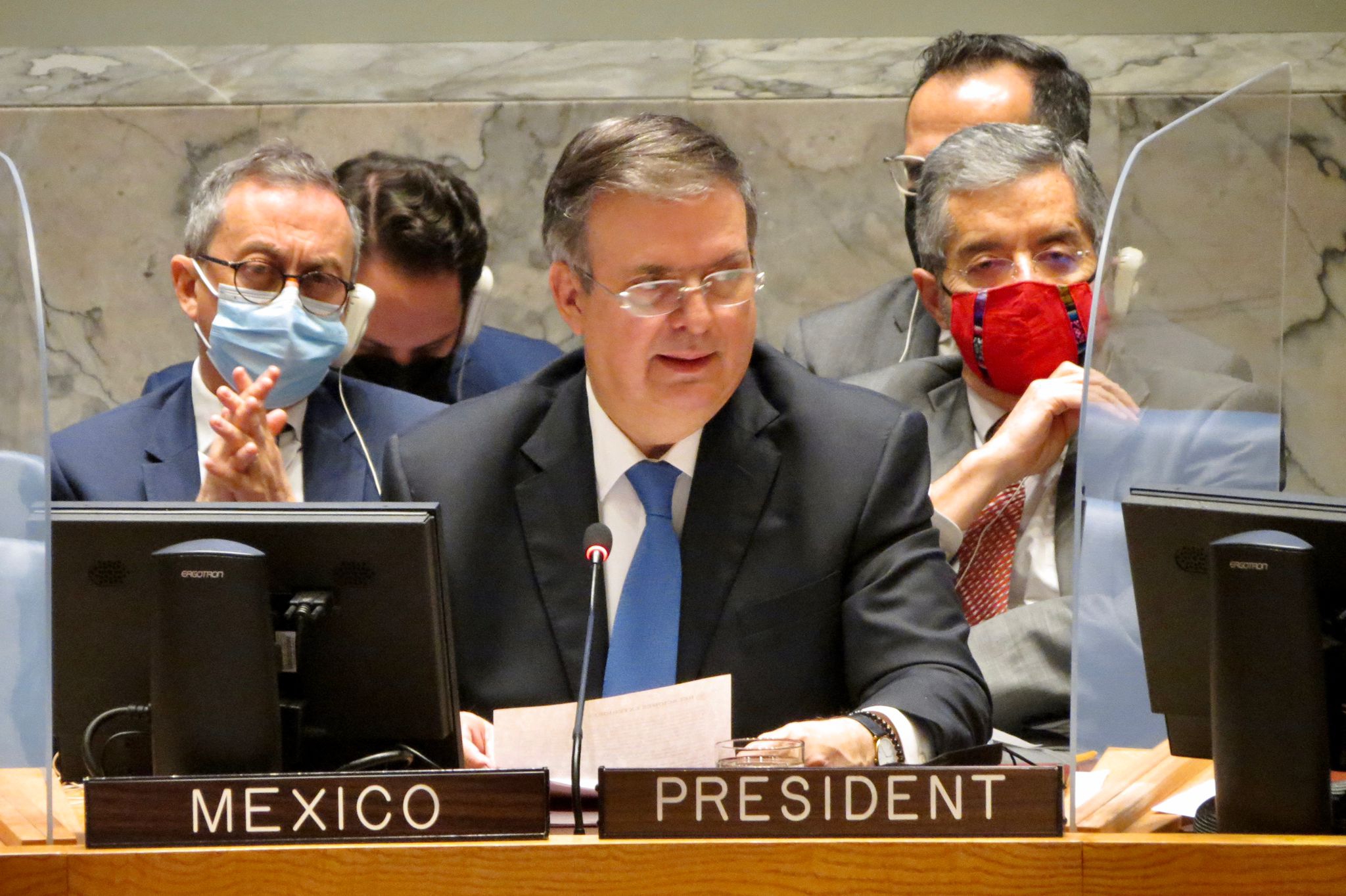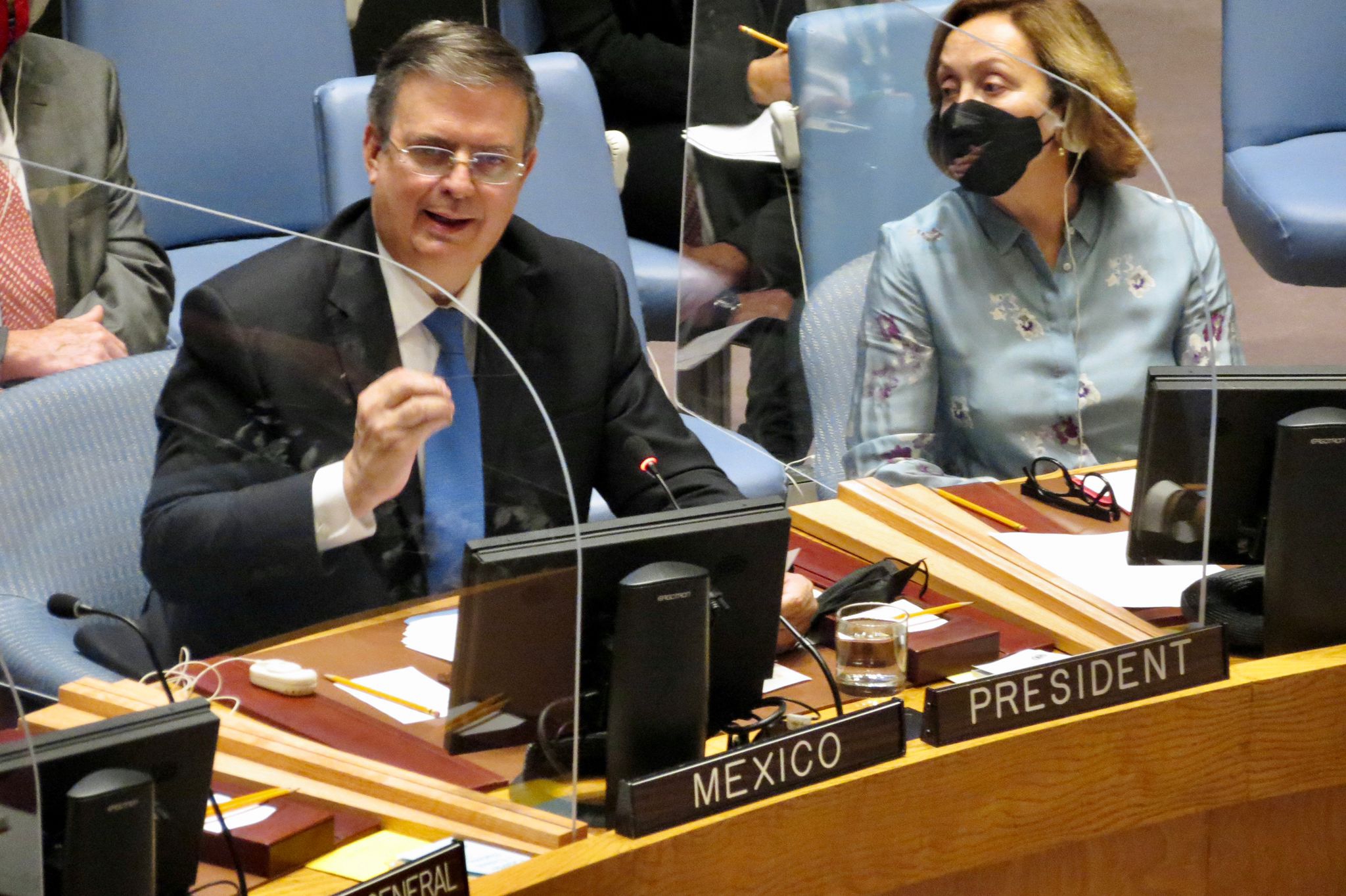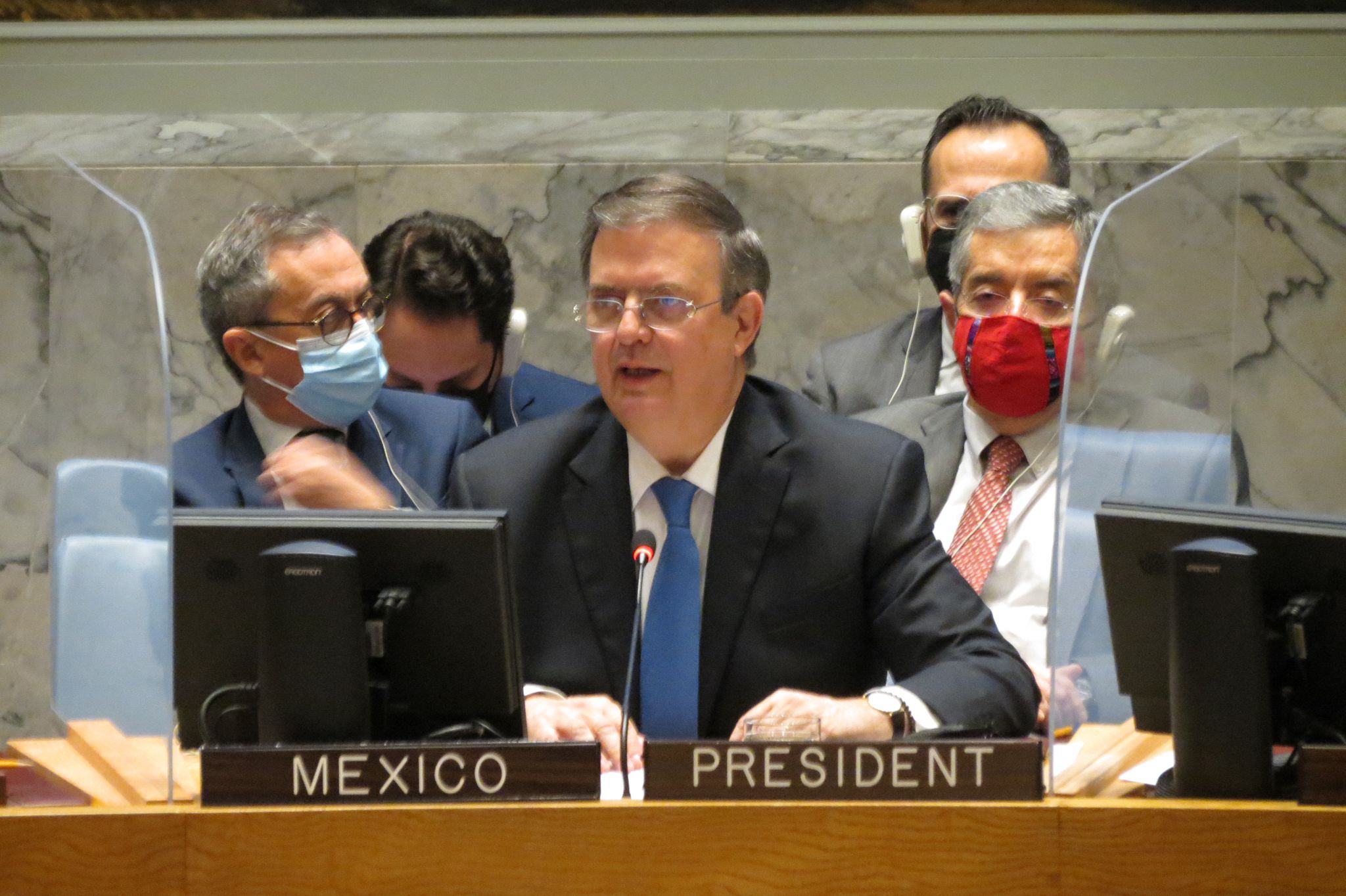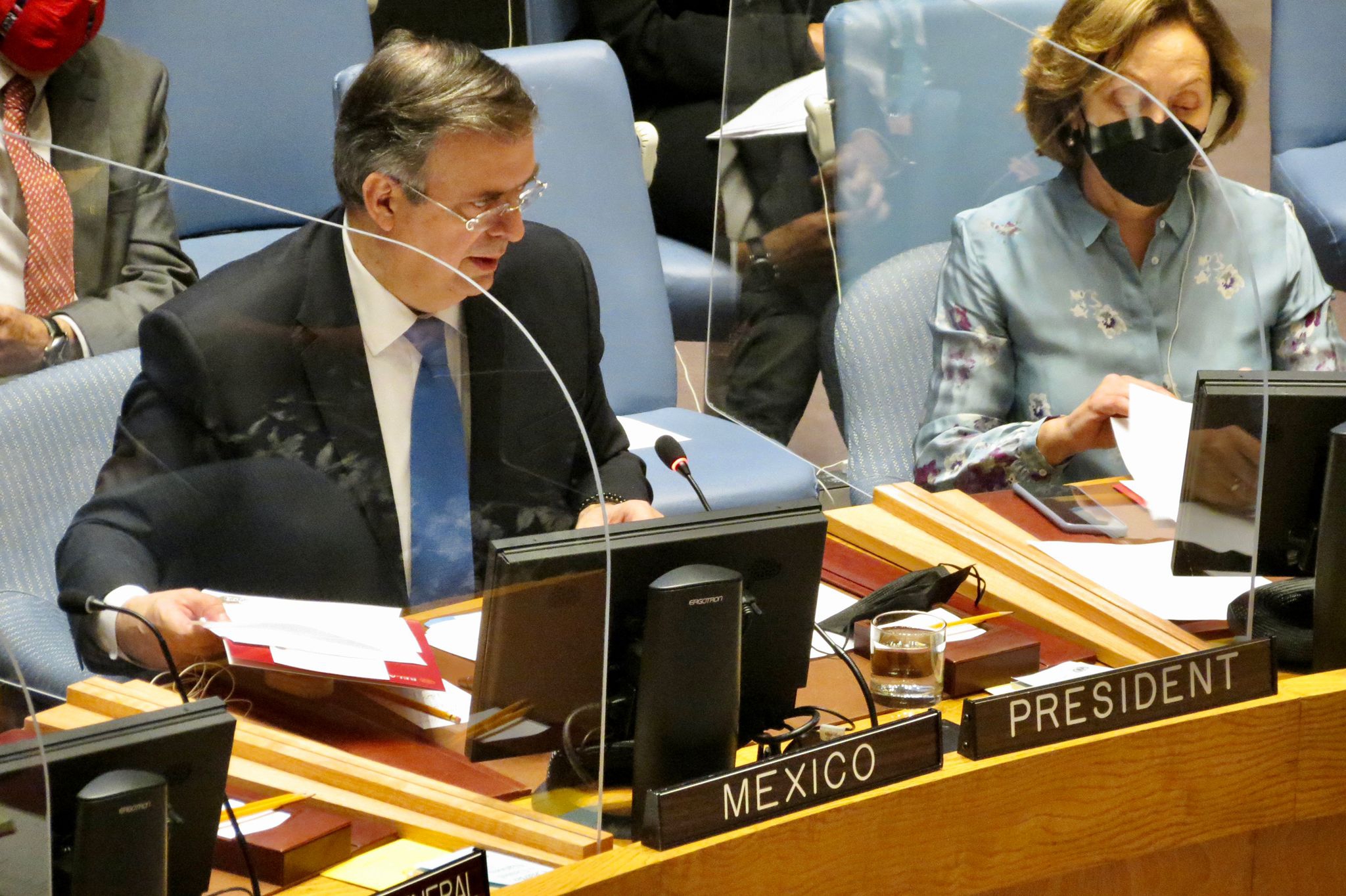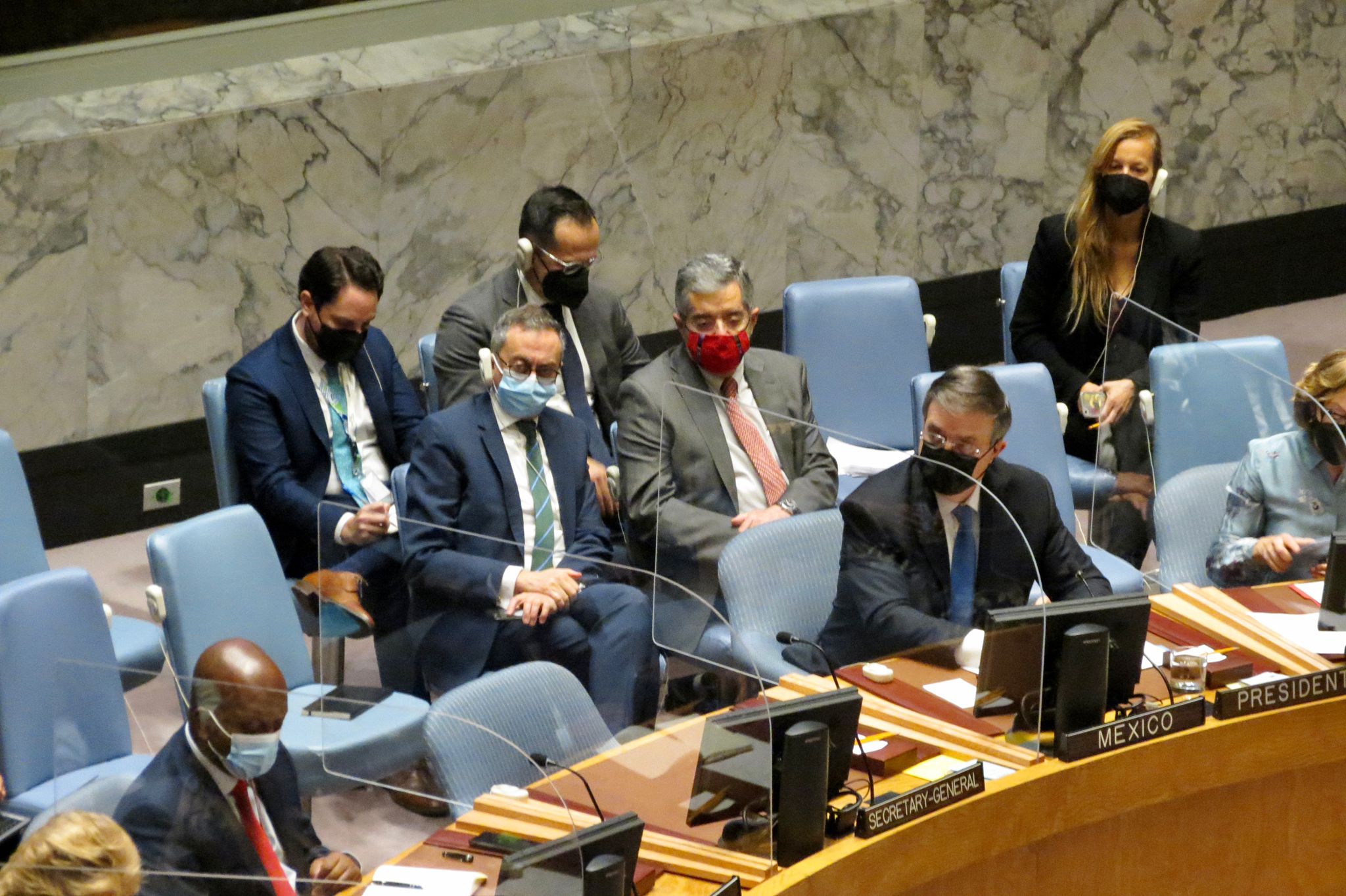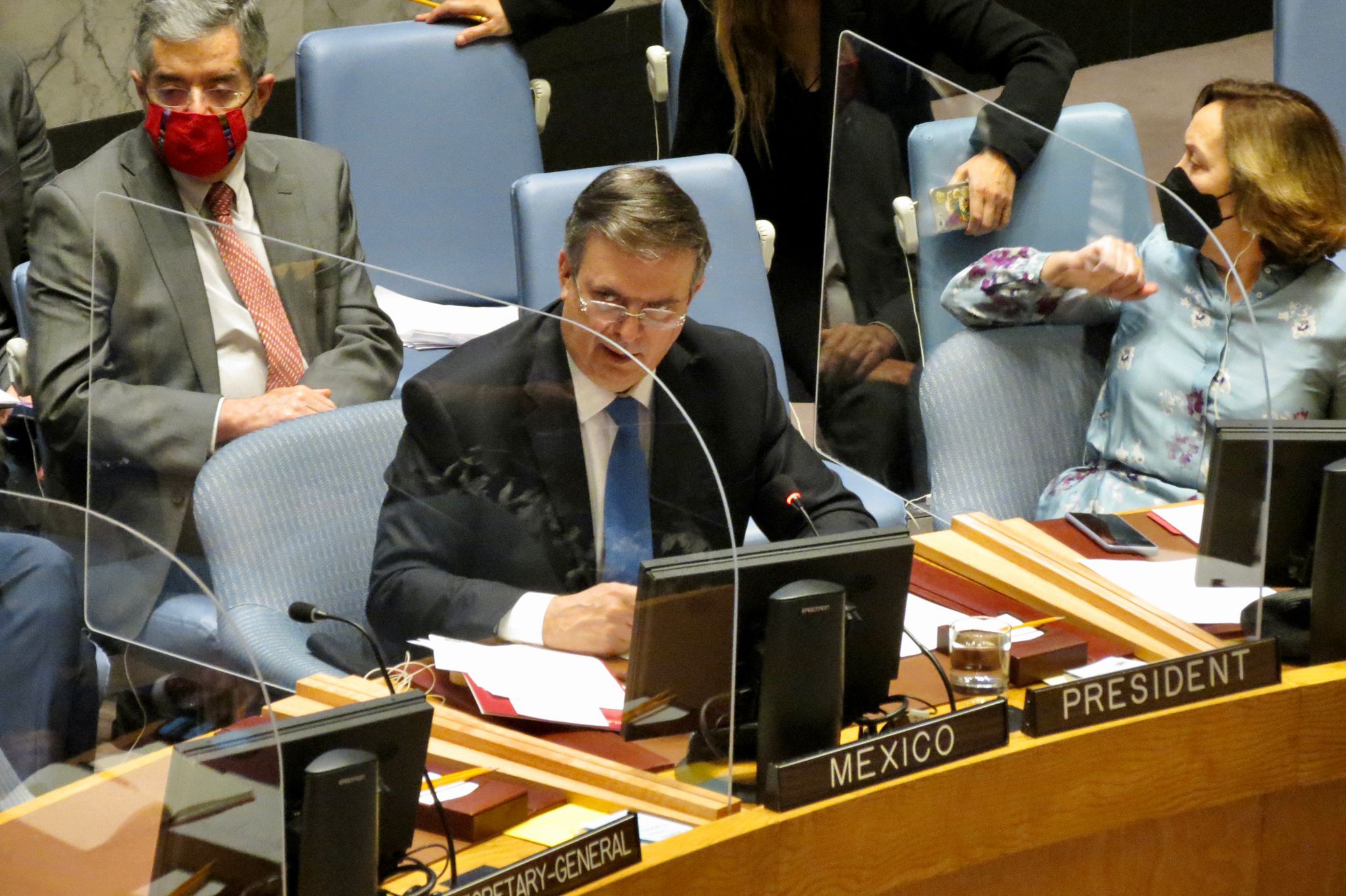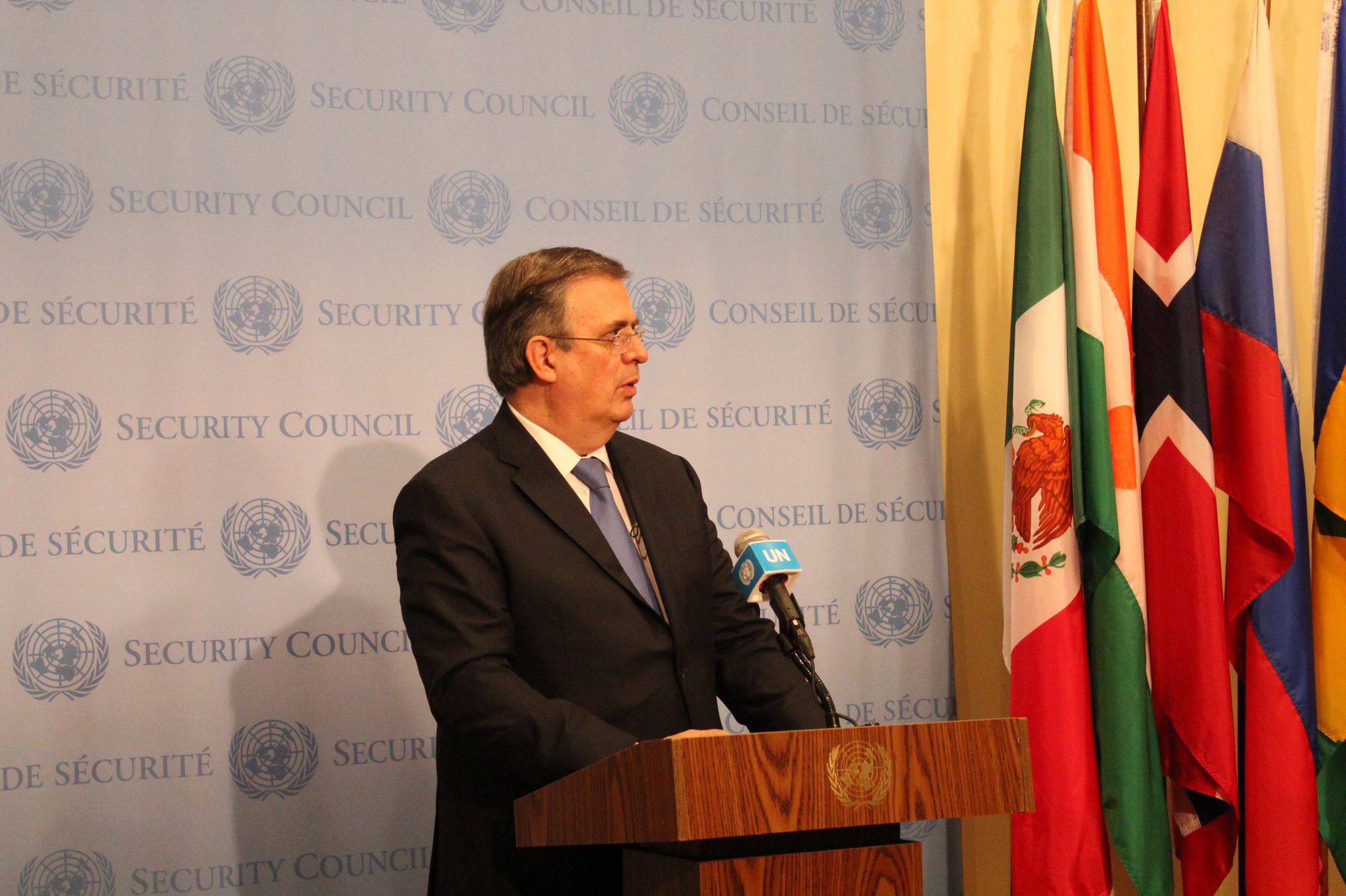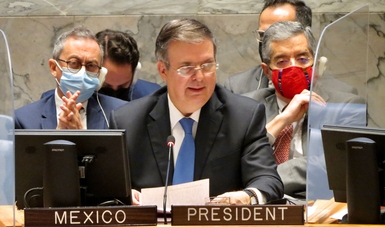- Mexico will promote a UN Security Council resolution against arms trafficking
Today at the United Nations, Foreign Secretary Marcelo Ebrard called on the world's governments and companies to take measures to prevent arms trafficking because of the violence it feeds in various parts of the world, including Mexico.
As UN Security Council president for November, Foreign Secretary Ebrard said that the illicit trafficking and diversion of small arms and light weapons, in addition to their accumulation and proliferation in various parts of the world, is a threat to international peace and security.
"Arms trafficking is a global issue that seriously affects the civilian population in many ways, destroying the social fabric and leading to violence, especially against vulnerable groups. It causes the displacement and irregular movement of people wanting to escape from insecure situations," he said to the permanent and non-permanent members of the Security Council and other UN members.
The Secretary recognized the efforts of the UN to prevent and counteract the illegal practices present in the market for small arms and light weapons. However, he said that these actions have not been enough.
The Secretary reported that about 500 people lose their lives and another 2,000 are shot and injured every day around the world. In Latin America, there are annual figures of violence and deaths from firearms that are even higher than those seen in areas of the world with armed conflicts.
"We must do more to reduce the diversion and trafficking of arms and their negative consequences, particularly in countries that are struggling with high levels of criminal violence," said Foreign Secretary Ebrard, who was accompanied by Mexico's permanent representative to the UN, Ambassador Juan Ramón de la Fuente.
Secretary Ebrard pointed out that, in addition to governments, the private sector is also responsible for arms trafficking. Private actors must contribute with decisive actions to self-regulate and monitor their distribution chains to avoid the diversion and illicit trafficking of the weapons they produce and sell, and must also ensure that the weapons they make lawfully do not reach the hands of criminals.
The Foreign Secretary also stressed that, although the availability of small arms and light weapons affects both women and men, it is crucial to recognize the gender repercussions that arise from the trafficking and diversion of these weapons, which facilitate sexual violence in conflicts.
- The necessary measures
In order to reduce the firepower of the criminal organizations in our territory, the Mexican government has launched a diplomatic and legal offensive to reduce arms trafficking to our country.
In his remarks, Foreign Secretary Ebrard referred to the lawsuit filed in a Massachusetts court last August by Mexico against U.S. arms manufacturers. Mexico accuses them of engaging in willfully negligent practices in the manufacture and sale of weapons that encourage illegal trafficking and, consequently, affect the Mexican people and increase violence.
On Monday, in the multilateral organization, Secretary Ebrard introduced a proposal against arms trafficking that will be formalized in the coming days as an initiative that will be presented by Mexico.
"It is imperative to address the complete life cycle of weapons, including the intermediaries, and their transfer and end users," emphasized the Secretary.
It is also important to ensure effective and comprehensive border controls and to promote coordination between the authorities of the different countries through which the weapons are trafficked; to create rigorous statistical databases and accurate diagnoses of the dynamics, routes and trends of arms trafficking and diversion; and to establish and improve mechanisms to monitor and prevent illicit international arms transfers, the diversion of cross-border trade, and trafficking.
Fifty-four UN members participated in the session chaired by Mexico, including the 15 permanent and non-permanent Security Council members. Also participating were the representative of the European Union in the United Nations and the permanent observer of the International Committee of the Red Cross, as well as two experts on the subject, Robin Geiss, Director of the United Nations Institute for Disarmament Research ( UNIDIR), and María Pía Devoto, member of the Control Arms Governance Baord.
The Mexican proposal was well received by the countries in attendance. In the coming days, Mexico will present a resolution on the issue in the Security Council.
